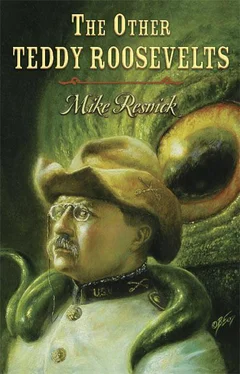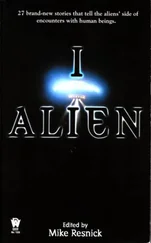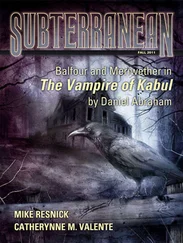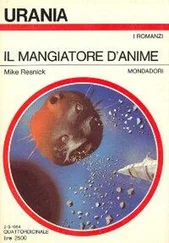* * *
“If I am to be any use in politics,” Roosevelt wrote to a friend, “it is because I am supposed to be a man who does not preach what he fears to practice. For the year I have preached war with Spain…” So it was inevitable that he should leave his job as Undersecretary of the Navy and enlist in the military. He instantly became Lieutenant Colonel Roosevelt and began putting together a very special elite unit, one that perhaps only he could have assembled. The Rough Riders consisted, among others, of cowboys, Indians, tennis stars, college athletes, the marshal of Dodge City, the master of the Chevy Chase hounds, and the man who was reputed to be the best quarterback ever to play for Harvard. They were quite a crew, Colonel Roosevelt’s Rough Riders. They captured the imagination of the public as had no other military unit in United States History. They also captured San Juan Hill in the face of some serious machine gun fire, and Roosevelt, who led the charge, returned home an even bigger hero than when he’d left.
* * *
While on a bear hunt in Mississippi, Colonel Roosevelt, as he liked to be called after San Juan Hill and Cuba, was told that a bear had been spotted a few miles away. When Roosevelt and his entourage — which always included the press — arrived, he found a small, undernourished, terrified bear tied to a tree. He refused to shoot it, and turned away in disgust, ordering a member of the party to put the poor creature out of its misery. His unwillingness to kill a helpless animal was captured by Washington Post cartoonist Clifford Berryman. It made him more popular than ever, and before long toy companies were turning out replicas of cute little bears that the great Theodore Roosevelt would certainly never kill, rather than ferocious game animals. Just in case you ever wondered about the origin of the Teddy Bear.
* * *
Some 30 years ago, writer/director John Milius gave the public one of the truly great adventure films, The Wind and the Lion , in which the Raisuli (Sean Connery), known as “the Last of the Barbary Pirates”, kidnapped an American woman, Eden Perdicaris (Candice Bergan) and her two children, and held them for ransom at his stronghold in Morocco. At which point President Theodore Roosevelt (Brian Keith, in probably the best representation of Roosevelt ever put on film) declared that America wanted “Perdicaris alive or Raisuli dead!” and sent the fleet to Morocco. Wonderful film, beautifully photographed, well-written, well-acted, with a gorgeous musical score. Would you like to know what really happened? First of all, it wasn’t Eden Perdicaris; it was Ion Perdicaris, a 64-year-old man. And he wasn’t kidnapped with two small children, but with a grown stepson. And far from wanting to be rescued, he and the Raisuli became great friends. Roosevelt felt the President of the United States had to protect Americans abroad, so he sent a telegram to the Sultan of Morocco, the country in which the kidnapping took place, to the effect that America wanted Perdicaris alive or Raisuli dead. He also dispatched seven warships to Morocco. So why wasn’t there a war with Morocco? Two reasons. First, during the summer of 1904, shortly after the kidnapping and Roosevelt’s telegram, the government learned something that was kept secret until after all the principles in the little drama — Roosevelt, Perdicaris, and the Raisuli — had been dead for years…and that was that Ion Perdicaris was not an American citizen. He had been born one, but he later renounced his citizenship and moved to Greece, years before the kidnapping. The other reason? Perdicaris’s dear friend, the Raisuli, set him free. Secretary of State John Hay knew full well that Perdicaris had been freed before the Republican convention convened, but he whipped the assembled delegates up with the “America wants Perdicaris alive or Raisuli dead!” slogan anyway, and Roosevelt was elected in a landslide.
* * *
Roosevelt was as vigorous and active as President as he’d been in every previous position. Consider: even though the country was relatively empty, he could see land being gobbled up in great quantities by settlers and others, and he created the national park system. He arranged for the overthrow of the hostile Panamanian government and created the Panama Canal, which a century later is still vital to international shipping. He took on J. P. Morgan and his cohorts, and became the greatest “trust buster” in our history, then created the Department of Commerce and the Department of Labor to make sure weaker Presidents in the future didn’t give up the ground he’d taken. We were a regional power when he took office. Then he sent the Navy’s “Great White Fleet” around the world on a “goodwill tour”. By the time it returned home, we were, for the first time, a world power. Because he never backed down from a fight, a lot of people thought of him as a warmonger — but he became the only American President ever to win the Nobel Peace Price while still in office, when he mediated a dispute between Japan and Russia before it became a full-fledged shooting war. He created and signed the Pure Drug and Food Act. He became the first President to leave the United States while in office, when he visited Panama to inspect the Canal.
* * *
Roosevelt remained physically active throughout his life. He may or may not have been the only President to be blind in one eye, but he was the only who to ever go blind in one eye from injuries received in a boxing match while serving as President . He also took years of jujitsu lessons while in office, and became quite proficient at it. And, in keeping with daughter Alice’s appraisal of him, he was the first President to fly in an airplane, and the first to be filmed.
* * *
Roosevelt’s last day in office was February 22, 1909. He’d already been a cowboy, a rancher, a soldier, a marshal, a police commissioner, a governor, and a President. So did he finally slow down? Just long enough to pack. Accompanied by his son, Kermit, and the always-present journalists, on March 23 he boarded a ship that would take him to East Africa for the first organized safari on record. It was sponsored by the American and Smithsonian museums, which to this day display some of the trophies he shot and brought back. His two guides were the immortal F. C. Selous, widely considered to be the greatest hunter in African history, and Philip Percival, who was already a legend among Kenya’s hunting fraternity. What did Roosevelt manage to bag for the museums? 9 lions, 9 elephants, 5 hyenas, 8 black rhinos, 5 white rhinos, 7 hippos, 8 wart hogs, 6 Cape buffalo, 3 pythons, and literally hundreds of antelope, gazelle, and other herbivores. Is it any wonder that he needed 500 uniformed porters? And since he paid as much attention to the mind as to the body, one of those porters carried 60 pounds of Roosevelt’s favorite books on his back, and Roosevelt made sure he got in his reading every day, no matter what. While hunting in Uganda, he ran into the noted rapscallion John Boyes and others who were poaching elephants in the Lado Enclave. According to Boyes’s memoir, The Company of Adventurers , the poachers offered to put a force of 50 hunters and poachers at Roosevelt’s disposal if he would like to take a shot at bringing American democracy, capitalism and know-how to the Belgian Congo (not that they had any right to it, but from their point of view, neither did King Leopold of Belgium). Roosevelt admitted to being tempted, but he had decided that his chosen successor, William Howard Taft, was doing a lousy job as President and he’d made up his mind to run again. But first, he wrote what remains one of the true classics of hunting literature, African Game Trails , which has remained in print for just short of a century as these words are written. (And half a dozen of the journalists sold their versions of the safari to the book publishers, whose readers simply couldn’t get enough of Roosevelt.)
Читать дальше










